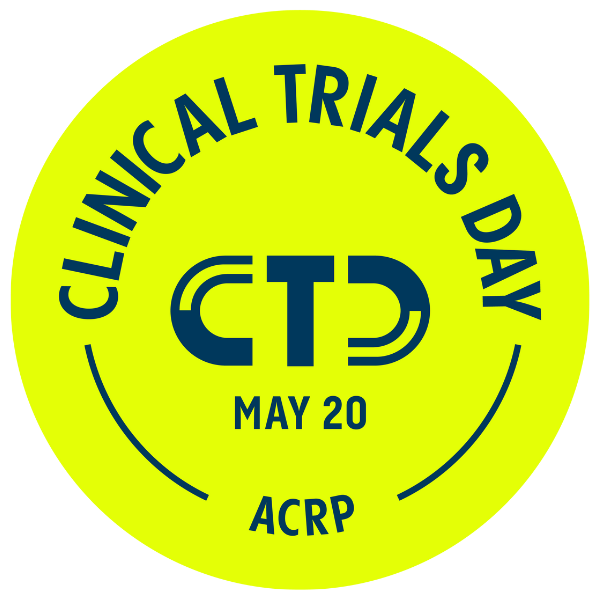About Clinical Trials Day
Organized and promoted by ACRP since 2014, Clinical Trials Day arrives each May 20 as a joyful opportunity to pause in reflection, recognition, and admiration of all that has been accomplished thanks to clinical trials and the people behind them.
In the world of clinical research, the path forward is forged through the relentless pursuit of knowledge, an exacting application of best practices, and an unwavering commitment to championing patient well-being. This is the work of clinical research professionals.
They Are the Trailblazers Among Us.
Get Involved and Celebrate
ACRP has everything you need to celebrate Clinical Trials Day online and in the office. Our Clinical Trials Day celebration kits include selfie signs, photo props, posters, digital graphics, and more — plus, you can download ‘ready-for-production’ files to order buttons and stickers to give to your teams.
Why May 20?
Clinical Trials Day is celebrated globally each May 20 to recognize the day in 1774 that James Lind, a ship’s surgeon in the British Royal Navy, started what is often considered to be the first randomized clinical trial. In this case, it was to study the effects of different treatments on scurvy, a disease caused by a deficiency of vitamin C, and a major scourge for sailors on long voyages.
Amazingly, Lind had found a cure for scurvy--after carrying out a clinical trial in only 12 people, of whom only two received the active treatment of citrus fruits. Many historians believe that the prevention and treatment of scurvy using citrus was the single most important factor in enhancing the physical health of the British fleet.
This true story is intended to provide hope and solace to the thousands of clinical investigators who work every day--often unsuccessfully--to explore new treatments in medicine. Although these events occurred 250 years ago, clinical researchers will find Lind's experiences to be familiar. Initial enthusiasm is often based on sparse data, and early findings are typically regarded with skepticism by colleagues. Once established, it can take decades for the treatment to be widely adopted. When the life of a clinical research professional feels particularly challenging, the story of James Lind can provide encouragement to keep going!
Learn more about the history of clinical trials and the clinical research profession:



